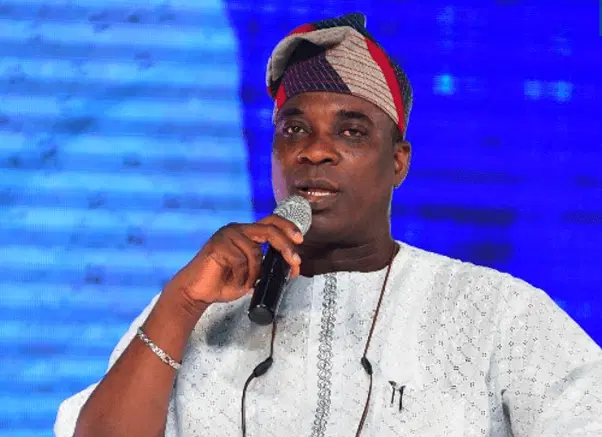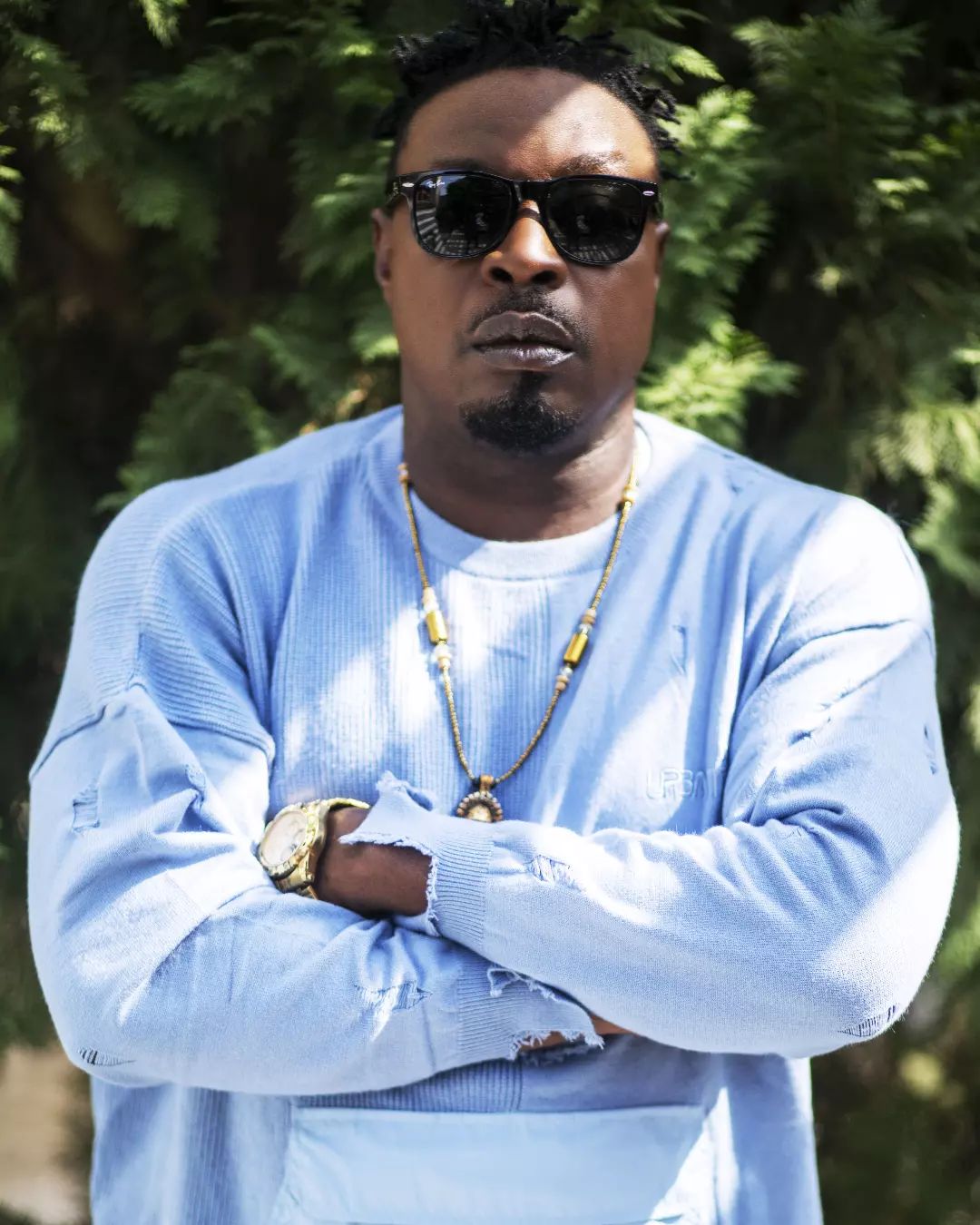Now Reading: K1 De Ultimate Banned from Flying for 6 Months — 4 Other Nigerian Celebs Faced Travel Bans That Were Even Worse
-
01
K1 De Ultimate Banned from Flying for 6 Months — 4 Other Nigerian Celebs Faced Travel Bans That Were Even Worse
K1 De Ultimate Banned from Flying for 6 Months — 4 Other Nigerian Celebs Faced Travel Bans That Were Even Worse

In a country where fame often grants certain immunities, the news that K1 De Ultimate was banned from flying for six months sent a strong message: even Nigeria’s biggest stars are not above the law.
The Fuji legend, known for his grand stage presence and deep cultural influence, was barred from air travel for violating in-flight conduct standards aboard Air Peace. While many fans were stunned, this is not the first time a Nigerian celebrity has clashed with travel regulations.
In fact, K1 De Ultimate’s six-month flight ban now joins a growing list of celebrity travel controversies that reflect deeper issues in our aviation, legal, and social systems. From passport confiscations to international harassment, these cases highlight how fame intersects with accountability in unexpected ways.
Let’s take a closer look at K1 De Ultimate’s flight ban and four other Nigerian celebrities who faced even worse travel bans or restrictions.
1. K1 De Ultimate: Banned from Flying for 6 Months

Earlier this year, the Nigerian Civil Aviation Authority (NCAA) confirmed that Fuji music icon K1 De Ultimate (real name: Wasiu Ayinde Marshal) was barred from flying for six months following a disruptive episode on an Air Peace flight from Lagos to Abuja.
According to eyewitness accounts and airline reports, the singer allegedly refused to comply with safety protocols, sparking tension onboard. His behavior was deemed “unruly and unacceptable,” leading to a disciplinary report filed against him.
The regulatory agency, citing Section 30 of the NCAA Consumer Protection Regulations (Part 19), issued a formal no-fly directive. This decision, although rare for someone of his public stature, underscored the agency’s zero-tolerance policy for interference with flight operations.
“No passenger, regardless of status, is above aviation safety protocols,” said a representative from the NCAA during a press briefing. “We hope this serves as a deterrent.”
While K1 De Ultimate’s flight ban is temporary, its ripple effects are permanent, stirring national conversations about celebrity accountability, passenger rights, and public conduct in critical spaces.
2. Modupe “Moe” Odele: Passport Seized for Speaking Out

READ ALSO: Rodger Dugging: Meet the British Businessman That Owns 450 Cars
In 2020, lawyer and activist Modupe Odele, popularly known as Moe, faced a form of travel restriction that went beyond aviation laws, it struck at the core of civil liberties.
During the #EndSARS protests, Moe provided pro-bono legal aid to arrested demonstrators and became a prominent voice in the youth-led movement. However, when she tried to board a flight out of the country shortly after, her passport was seized by immigration officials at the airport without formal charges.
The move was widely seen as an intimidation tactic, and it triggered national and international backlash. For several days, she was unable to leave Nigeria, despite no known warrant or court order restricting her movement.
“It was a shocking experience, but not entirely unexpected,” Moe later tweeted. “We know the risks of speaking truth to power in this country.”
Her case remains a chilling reminder that travel bans can be weaponized against dissent, even when they aren’t officially labeled as such.
3. Sunny Ofehe: Perpetually Hindered at Borders

Niger Delta activist and international environmentalist Sunny Ofehe has faced recurring harassment at border crossings and airports, particularly in Europe and parts of Africa due to his outspoken campaigns against oil exploitation and corruption.
Though not officially “banned” from flying, Ofehe has frequently been detained for hours, flagged for extra screening, or denied entry altogether in certain countries, despite carrying valid documentation.
In one instance, Dutch authorities held him for alleged security concerns, a move he claims was politically motivated and linked to his anti-oil activism.
His experiences illustrate how political advocacy can result in informal but damaging travel restrictions, where a person’s freedom of movement is silently curtailed without due process.
“You don’t need bars or chains to be restricted,” Ofehe once said. “They can simply use flags and files to slow you down.”
4. Eedris Abdulkareem: Airport Clash That Ruined His International Pass

Back in 2004, Nigerian rapper Eedris Abdulkareem made headlines for all the wrong reasons when he got into a public scuffle with officials at Murtala Muhammed International Airport in Lagos.
The clash reportedly involving airline crew and airport security stemmed from VIP boarding rights, with Eedris allegedly refusing to comply with boarding protocols. The incident spiraled into a heated confrontation that drew media attention and led to widespread condemnation.
Afterwards, several airline companies reportedly blacklisted him, limiting his ability to travel comfortably for shows and international engagements.
Though he was never officially “banned” by a government agency, the consequences of his behavior led to travel restrictions in practice, including canceled appearances abroad.
READ ALSO: Why KWAM 1 Spilled Alcohol on Airport Staff: Full Story Behind the Controversial Incident
5. Naira Marley: Controversial Flight During COVID-19 Lockdown

In 2020, amidst strict COVID-19 lockdown regulations, Afrobeats star Naira Marley was involved in a scandal over a chartered flight to Abuja for a concert despite a national ban on interstate travel and large gatherings.
The singer reportedly misused a special flight clearance meant for essential services, sparking outrage from the Nigerian public and aviation authorities.
While Naira Marley himself was not banned, the airline involved, Executive Jet Services was suspended, and its pilot sanctioned.
“We mistakenly flew a bunch of useless people,” the airline CEO wrote in a controversial letter later, trying to distance the company from the backlash.
Though Naira Marley escaped personal sanctions, the fallout damaged reputations and strained relationships between entertainers and aviation regulators, illustrating how celebrity travel missteps can have wider implications.





